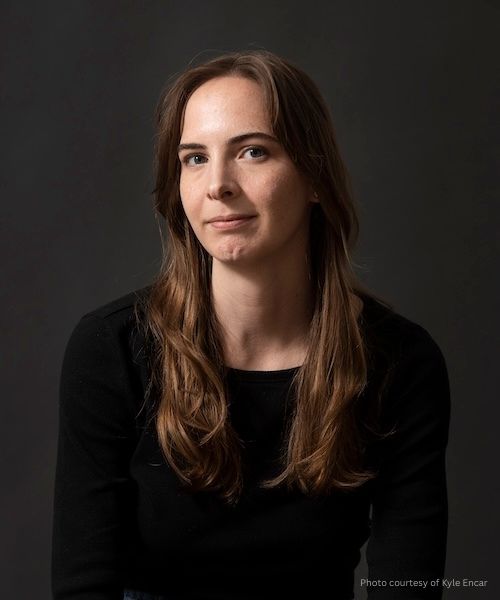Just as every conclave is a referendum on the previous papacy, every pope’s Catholic social teaching is a referendum on the economic and political systems he has experienced firsthand. John Paul II’s famous anti-Communism and priority on subsidiarity were, obviously, a reaction to the Communist Polish government’s economic overreach and persecution of its critics, particularly the Catholic Church. Pope Francis’ criticisms of unbridled capitalism and calls for the integration of immigrants, which earned him enemies in the United States, were shaped by seeing the shocking divisions between rich and poor in his native Buenos Aires, where shantytowns filled with immigrants rose higher and higher near highway on-ramps just outside wealthy neighborhoods.
So how will Pope Leo XIV’s background—growing up on Chicago’s South Side, ministering through tumultuous decades in Peru and traveling the world as Augustinian prior general—inform his own teachings on politics and economics?
Growing up American
Robert Prevost’s early years in the south Chicago suburbs were shaped by the stability of the postwar U.S. economy: Democracy was a given; the GI Bill® and a booming economy kept the middle class strong.
But when he began ministering on Chicago’s South Side in the early 1980s as a graduate student at the Catholic Theological Union, he encountered a very different America. The country had been dragged into a deep recession as the Federal Reserve ratcheted up interest rates to fight inflation. Unemployment soared. Manufacturing jobs that had long sustained working-class neighborhoods like those in the South Side were disappearing. Meanwhile, Reagan’s economic program—tax cuts for the wealthy, shrinking the social safety net—left families with fewer supports, even as the “War on Drugs” meant that in most cases, addiction was met with prison rather than treatment.
In that context, Prevost’s ministry put him face-to-face with people whose dignity had been stripped away by unemployment, poverty, and chemical dependency. He saw both the centrality of meaningful work to human dignity and the need for society to protect the vulnerable when markets and governments fall short.
Learning Fragility in Peru
If his time in the United States showed him the promise and pitfalls of capitalism, Peru showed Prevost the fragility of democracy itself. Prevost spent a decade there as a young missionary-priest (1988-1999), as the country was ravaged by violence and divestment during the Shining Path and Túpac Amaru Revolutionary Movement (MRTA) insurgencies, and then through the repressive Alberto Fujimori regime, which met terror with violence and eroded Peru’s already-fragile democracy.
When Prevost returned as an apostolic administrator and then bishop (2014-2023), the country cycled through seven presidents in nine years, most of them dogged by accusations of corruption; in 2020, Peru had one of the world’s highest death rates from coronavirus and saw one of Latin America’s steepest contractions in GDP, shrinking by 11 percent.
Amid this chronic instability, the Catholic Church was often one of the only institutions people could trust. As a pastor and bishop, following the Augustinian missionaries’ model, Prevost enabled lay people to carry out much of the Church’s work. Under the Fujimori regime in particular, Prevost and his brother Augustinians put themselves on the line for their parishioners who were protesting the government’s human rights abuses.
Prevost’s years in Peru showed him that democracy cannot be taken for granted. He saw that when governments fail, the Church has to provide not just charity but moral leadership and protection. If Chicago had impressed on him the human cost of inequality, Peru showed him what happens when political institutions themselves collapse.
A Global Lens from Rome
A third locus of Leo XIV’s pre-papacy life was Rome, where he had studied canon law as a young man and from which he spent twelve years traveling to some fifty countries around the world—many twice—as prior general of the Augustinian Order.
During those twelve years (2001-2013), he learned through careful listening to local Augustinian communities how globalization was reshaping the global economy and the Church’s work. He encountered poverty in Africa and Latin America, secularism in Europe, consumerism in North America. With ample time to reflect on the long road trips between meetings, Prevost likely learned to read local crises as part of wider global patterns.
That global vision stayed with him when he returned to Rome in 2023 as prefect of the Vatican’s Congregation for Bishops, a job that had him vetting leaders for local Church communities the world over (though not, notably, in “mission territories,” where bishops are recommended to the pope by the Dicastery for Evangelization.)
The last years before his election coincided with the explosion of artificial intelligence (AI) technologies—an area in which the Vatican had been active for years, convening dialogues with tech industry leaders on the ethical development of AI. Upon his election, Leo clarified that he had chosen his name after Leo XIII, the pope who had advocated for the rights of workers during the industrial revolution. Surely this pope, formed by encounters with unemployed and underemployed workers, saw the threat an AI revolution would present to workers in the modern day, as well as the potential for it to both enrich and destabilize economies.
What does this all mean for what we can expect from Pope Leo’s Catholic social teaching?
It is likely that, like his predecessors, Pope Leo will focus on the interlocking crises of his time, informed by his biography that, in his case, stretches from middle-American suburbs to Northern Peru and around the world.
Leo’s social teaching, then, will likely focus on the dignity of work, especially as AI and automation threaten jobs; the importance of community and solidarity, inspired by his experience of lay material cooperation in Peru and his concern over social isolation due to technology; the need for social safety nets, shaped by his witness of disinvestment in Chicago and state collapse in Peru; the defense of democracy, rooted in a conviction that it is precious but fragile; and the global dimensions of inequality, which he saw firsthand across fifty countries.

